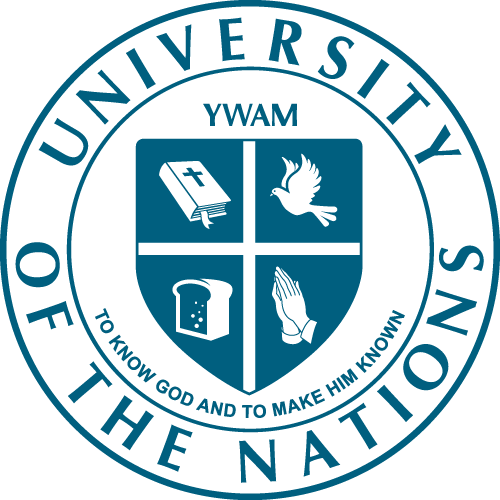The Genesis account begins by saying that the earth was “formless and empty”. Over the course of the first three days, God brings form. Over the second three days, God fills the emptiness. On the 6th day, God formed Adam and Eve as relational personal beings like himself who were to rule creation as his Image Bearers. An implication of this is every human being is of equal value regardless of race, gender, age and social standing and each person is unique and significant to God.
Central to our human identity is our need for relationship both with God and one another. Relationship with God and with others is the most fundamental part of life. Special care is needed to cultivate both. As the story progresses, God gives Moses and his people, Israel, fundamental principles for these relationships: the Ten Commandments.
God placed Adam and Eve in the Garden of Eden, a perfect place for him to dwell with his Image Bearers. They enjoyed intimate fellowship together. God assigned Adam and Eve the task of multiplying themselves and cultivating the rest of the earth. From the beginning, God intended to accomplish his purposes in creation by partnering with us, as illustrated when Adam named the animals.
God respects the gifts and responsibilities he has given us by making room for our initiatives and choices. God’s dream was for people to develop families, communities and cultures that reflect aspects of his character. He gives us the capacity to create, to have ideas, to find solutions and provide services to one another in ways that display his glory in every context of life: family, church, celebration, economy, media, government, and education.
God gave Adam and Eve the opportunity to stay submitted to him in loving obedience by instructing them to enjoy all the fruit of the trees of the garden but one.
Engaging your DTS in this part of the Story
We engage the DTS in right relationship with God through instruction/teaching, worship, and prayer. We discuss right relationship with God and others according to God’s ways such as the ‘One Another Passages’ and practice these largely in informal times: at meals, in dorm rooms and during times of being together.
We practice relationships in Small Group interaction, on local outreach and Outreach Phase teams, in team work duties and other group activities. We commit, from the beginning of the DTS until the last day, to build and maintain healthy community in which we can participate, reflect, share and receive God’s love and life in its midst. Meals, fun nights, times of celebration and informal times together are ways to contribute to this.
We value one another through cultural expressions, cultural meals or events, and praying in different languages. We allow uniqueness to be expressed in fun/talent nights, and through giving students as much choice in outreach, work duties etc. as we can. We involve the DTS in work duties and appropriate responsibilities and model that work is good!
We utilise giftings and talents in the school such as having students decorate for love feasts, cook special meals, share testimonies, teach something they are good at, give opportunities for creativity, and contribute to the development of ministry in the Outreach Phase location, etc.
Key Concepts
All people are made in the image of God and as such are the most valuable of all creation.
Every person is of equal value regardless of race, gender, age, social standing, and each person is unique and significant to God.
People are to live and work in a way that honors and glorifies God.
Relationship with God, self and with others is the most fundamental part of life. The Ten Commandments set the standard for these relationships.
All people are created with an ability to recognize the existence of God and with a conscience to help guide in knowing and doing what is right.
God gave people the capacity to create, to have ideas, and to find solutions.
God gave people the capacity and responsibility to make choices that have an effect in history.
God has chosen to accomplish his purposes by partnering with people. He respects the gifts and responsibilities he has given them by making room for their initiatives and choices.
Intercession involves interaction between people and God with the aim of furthering God’s purposes.
God made people responsible (stewards) for all of creation. Areas of stewardship include relationships, the environment, personal health, the value of work, making responsible choices, the value of rest, generosity, finances, spiritual gifts, hospitality and the value of time.
God intended for every people group to worship him and live for his glory.
God gave humanity abilities to serve one another in various ways in these spheres. All occupations are of equal value and can be a context through which a believer can glorify God (e.g. farmer, pastor, politician, artist, shop keeper, nurse, teacher, evangelist).
God reveals in the Bible some basic principles on which a nation or society should be built. These principles can be applied differently in nations in the spheres of family, church, art and entertainment, economy, media, health, government, education. See Sphere View Bible.
The Story Line
- God: Father, Son and Holy Spirit
- Creation: Image Bearers
- The Fall: Broken Image Bearers
- Children of Abraham: Covenant Image Bearers Failed
- Jesus Christ: The True Image Bearer
- Holy Spirit and the Church: Renewed Image Bearers
- Jesus’ Return, Kingdom Come, Renewal of Creation: Reign of Restored Image Bearers Bearers, with Jesus, in creation under God
Key Themes
Purpose and Value of All Human Beings (Image Bearers): Male and Female, Different Ethnicities, Callings and Gifts
God and his Kingdom: World View, Unreached People Groups, and Spheres of Society (Discipling Nations), Christian Magna Carta, and Creation Care
Healthy Relationships: Family, Marriage, Friendships, Team Dynamics
Suggestions for Reflection:
Reflect on aspects of your family story and cultural heritage that contribute in positive ways to who you are today. In what ways do you see glimpses of God’s character reflected?
List 5 important relationships in your life today (family and friends). Prayerfully consider how you might strengthen these relationships even during your time in the DTS.
What was it like growing up as a girl or a boy in your family and culture?
Identify someone you know who is partnering with God to bring about his will in their workplace. In what ways are they contributing to God’s kingdom coming? (not someone in the Religion sphere)
Jesus instructed us to invite God’s will to be done on earth as it is in heaven. Why does God wait for our invitation? How might this truth impact your prayer life?




